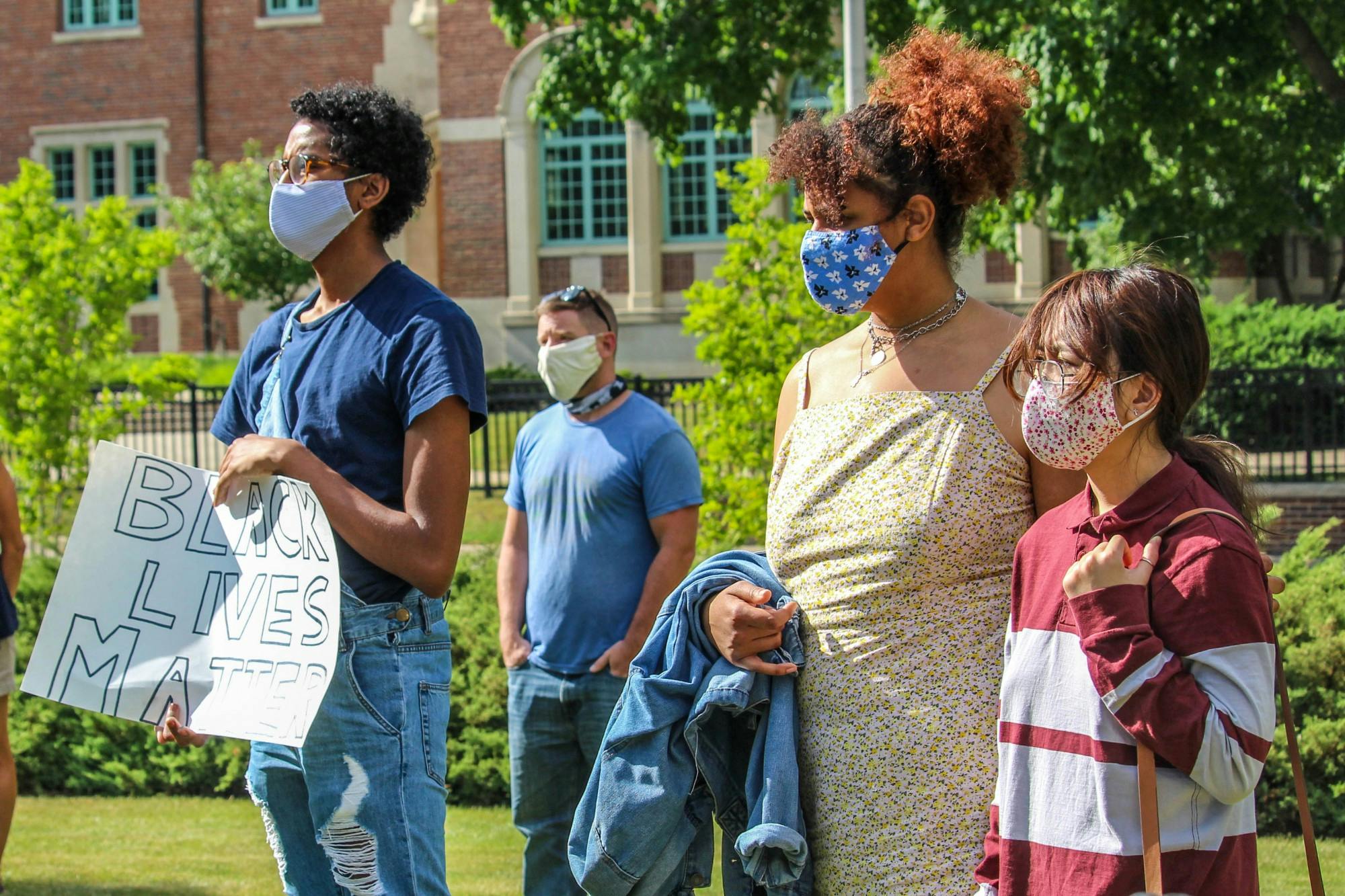East Lansing City Council unanimously approved a resolution that declares racism a public health crisis, during the Tuesday night meeting.
The resolution was a partnership between Diversity, Equity and Inclusion (DEI) Administrator Elaine Hardy, Council Member Dana Watson, who is also a member of Human Rights Commission (HRC), and the City Council.
Not only does the resolution declare racism a public health crisis, it also lists 11 other points that the City Council shall do. These include promoting equity through all policies approved by the council, advocating locally for policies that improve health in communities of color, continue on-going racial equity training and conducting an annual review of declarations and commitments listed in the resolution as a public health crisis across the various governmental bodies by the DEI administration in partnership with the HRC and other relevant boards and commissions.
The resolution also acknowledges and adopts March 25 as an international day of remembrance for victims of the Trans-Atlantic slave passage.
"Since June, the city of East Lansing has made steps toward addressing the systemic issue of racism," Hardy said. "It began with our city manager's statement denouncing racism and discrimination in all forms and committing to dismantling the systemic structures that uphold racism. Tonight, we join local and state municipalities and governments all across this nation and declaring racism a public health crisis."
Hardy recognized the American Medical Association declaring racism a public health crisis on Nov. 16, and emphasized the social inequities for African Americans that cause persistent discrimination and disparate outcomes areas such as housing, education, employment and criminal justice.
"It has been proven that racism is linked to worse health outcomes for Black people, most recently highlighted by the COVID-19 pandemic, but demonstrated in the high rates of infant mortality, maternal death, breast cancer, prostate cancer, colon cancer, hypertension, mental health crisis and diabetes in Black communities," Hardy said.
Watson partnered with Hardy on the resolution and supported it during the meeting.
"I began before my appointment as a protester," Watson said. "It was catapulted due to the killing of George Floyd and watching our nation and state and county and cities come together with these resolutions to announce something as a public health crisis that has been going on and on and on for centuries is very meaningful. And something I very much appreciate about our resolution is not only talking about racism as a public health crisis, which is something our schools can talk about, and something people can see and read, and learn more about, or see that it's something that's recognized. But also, there's strategies in there to hold ourselves accountable to a racial equity lens, whether that's individually, group wise, or organizationally."
Watson made the motion to council to pass the resolution, which was passed unanimously with heavy support from the rest of the council members.
"It is a public health crisis and it impacts you directly, no matter what race you are, and if you're not willing to deal with it, you're losing," Council Member Ron Bacon said.
Council Member Lisa Babcock also showed strong support for the resolution and discussed her experiences witnessing the impact of health disparities among the African American community.
"I remember looking up in my late 30s, early 40s, and realizing that my friend's dads weren't with them anymore," Babcock said. "And my dad meant a lot to me. And I just thought about how wrong that was, just to experience that absence just because of things that might have been prevented, things that might have been discussed or tested for had their dad looked more like my dad at the skin level. And there is no difference, there was no difference with their relationships with their fathers than mine. The only difference was in a social construct about a pigment layer."
Mayor Aaron Stephens, along with approving the resolution, shared a personal experience during the meeting about the treatment his mother got after 9/11 and the conversations he had with her about being a person of color.
"The conversation that a lot of people have, and especially Black people in this country have to have is maybe more of an extent than I did, but just being treated differently," Stephens said. "When your mom has to tell you that you might be treated differently because of something that you can't control. And it's a constant crisis. And it affects policy, it affects healthcare, it affects poverty, it affects education and it affects people's perceptions of what the real issues in our country are. This is a deep issue, and there is a reason why you call it a public health crisis. There is a reason why this resolution is so expansive, and why I'm so moved by it because it addresses many of at least the outcomes of what racism does to a nation. So, we continue to take steps in this city moving toward a more equitable community because equity, and I've said this before, is not something that a single resolution or a single piece of policy does. It's constant work. This is another step in that work."
Support student media!
Please consider donating to The State News and help fund the future of journalism.
Discussion
Share and discuss “EL City Council approves resolution declaring racism a public health crisis” on social media.








